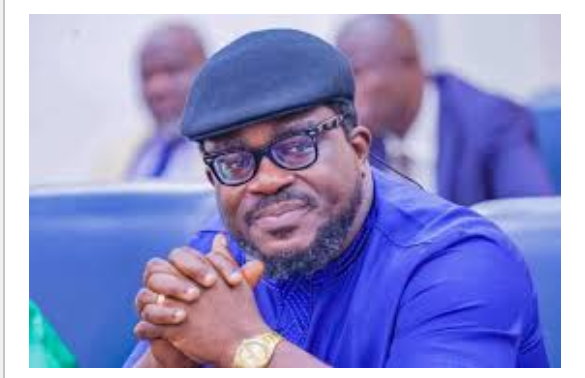Rep Obuzor: Federal Government Plans Nationwide Vision and Optical Research Centres.
The Nigerian government is considering replicating the Federal Institute for Vision and Optical Research across the six geopolitical zones to address the growing challenges of vision impairment in the country.
This was disclosed by Victor Obuzor, a member of the House of Representatives representing Ahoada West/Ogba Egbema/Ndoni in Rivers State. Obuzor, who sponsored the bill for the establishment of the Institute, revealed the development during a media briefing on Monday.

According to him, the bill has received overwhelming support during and after the recent public hearing at the National Assembly, with lawmakers recognising the urgent need to decentralise vision healthcare services.
“The House is delighted with the bill and has asked that the Institute, since it is the first of its kind, should be replicated in the six geopolitical zones,” he stated.
Addressing a Growing Public Health Crisis
Obuzor emphasised that the establishment of the proposed institute is a critical step in addressing the rising prevalence of vision impairment, particularly in underserved communities.
“As guardians of public health, we must address the escalating prevalence of vision impairment, particularly in underserved communities,” he noted.
With an estimated 50 million Nigerians currently suffering from visual disabilities and over seven million already blind, he stressed the need for swift action to curb the crisis.
“The proposed institute represents a crucial step towards mitigating this growing public health challenge and ensuring a brighter future for our citizens,” he added.
Citing World Health Organization (WHO) projections, Obuzor warned that without immediate intervention, the number of Nigerians affected by vision disorders could double by 2050.
Bill for the Federal College of Optometry
In addition to the Vision and Optical Research Institute bill, Obuzor is also sponsoring a bill for the establishment of a Federal College of Optometry, which would offer degree programmes, diplomas, and certificates in optometry and related fields.
He reiterated the importance of government investment in eye care services, stating, “The impact of optometric care is growing worldwide, and countries have devoted huge resources toward the development of infrastructure and human capital to ensure that this vital organ of the human body is given its pride of place. Without the eyes, life and living would be difficult.”
Legislative Support for Eye Care Development
The Speaker of the House of Representatives, Hon. Tajudeen Abbas, affirmed that if passed into law, the bills would enhance scientific research and development in vision healthcare, increase the number of qualified professionals, and expand specialised eye care facilities across Nigeria.
Similarly, the Chairman of the Committee on Specialty Healthcare, Hon. Alex Egbona, expressed his support, noting that the bills aim to improve public access to eye care, vision, and optical health services nationwide.
With these legislative efforts gaining momentum, stakeholders are hopeful that Nigeria will soon witness a significant transformation in eye healthcare, ensuring millions of visually impaired citizens receive the necessary medical attention.


